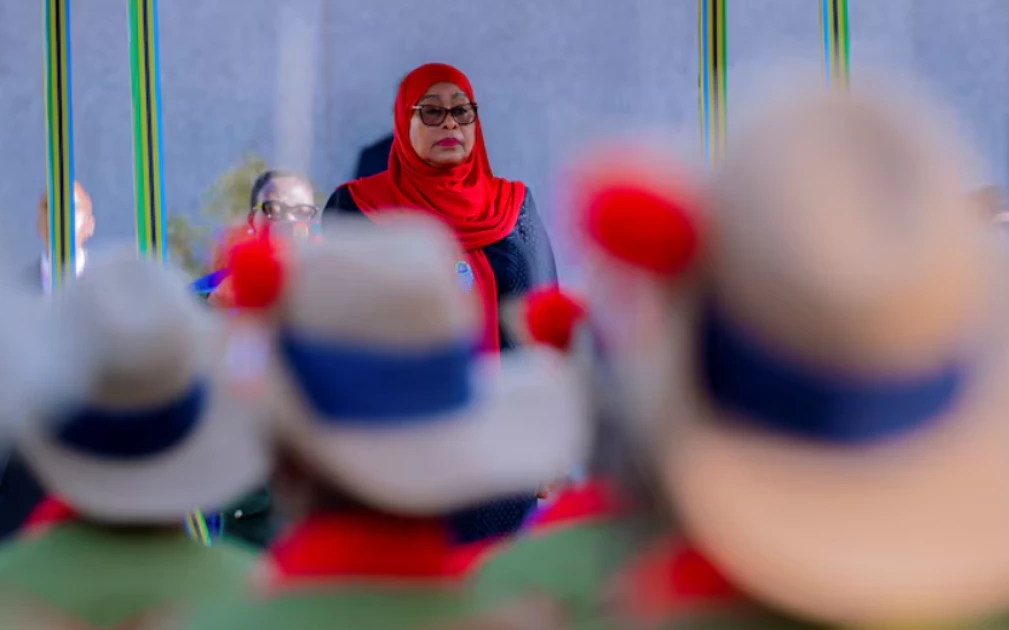Human rights activists dismiss Tanzania election as ‘a coronation, not a contest’

Tanzania's President Samia Suluhu Hassan arrives to address the parliament, before its dissolution ahead of the October General elections, in Dodoma, Tanzania June 27, 2025. REUTERS/Stringer/File Photo

Audio By Vocalize
Human rights activists drawn from across East Africa have
condemned what they describe as a “crackdown disguised as democracy” in
Tanzania, ahead of the country’s general elections scheduled for Wednesday.
In a joint statement issued in Nairobi on Tuesday, the
regional activists said the electoral process in Tanzania cannot be considered
free or fair, citing what they termed as widespread repression, harassment of
opposition figures, and restrictions on media and civil liberties.
“Contrary to rumours circulating, no elections are happening
in Tanzania tomorrow,” the activists said in a joint statement.
“There are no free and fair elections happening in Tanzania.
Samia Suluhu is preparing for her coronation, as her only opposition is her
very own shadow.”
They alleged that opposition politicians, particularly members
of the CHADEMA party, have been detained or barred from contesting, and that
the Independent National Electoral Commission (INEC) has acted with bias to
silence dissenting voices.
They further accused Tanzanian authorities of overseeing “a
silent epidemic of enforced disappearances, arbitrary detentions, torture,
rape, extrajudicial killings, and judicial harassment,” mainly targeting
critics of the regime and human rights defenders.
“Over the past three weeks, more than 55 people have been
forcibly disappeared, tortured, murdered, and held incommunicado,” they noted
in the statement said, referencing recent findings by Amnesty International
that repression in Tanzania has intensified ahead of the polls.
The groups said religious leaders have also been targeted for
speaking out against the government, citing the deregistration of the Ufufuo na
Uzima Church led by Bishop Josephat Gwajima, and the abductions and threats
faced by several clergy.
They added that international media houses have been denied
access to Tanzania, while local journalists and online content creators face
arrests, censorship, and surveillance. “Media and digital censorship remain
pervasive,” the activists said.
On election observation, the statement noted that most
credible missions, including from Belgium, Germany, Sweden, and Ireland, have
withdrawn, while the European Union and United Nations Development Programme
are not participating.
“The African Union’s decision to send observers despite the
ongoing human rights crisis shows a willful blindness,” the statement read.
“Those who choose to recognize the Tanzanian elections are
turning a blind eye to the realities of human rights violations.”
The activists urged citizens across the region to stand in
solidarity with Tanzanians, warning that the erosion of democracy in one
country threatens justice and freedom across the East African Community.
“Injustice anywhere is a threat to justice everywhere,” the groups
stated. “As despots regroup to oppress citizens, we, as the citizens, are
similarly regrouping to reclaim our countries and our inherent freedoms. Aluta
continua.”


Leave a Comment